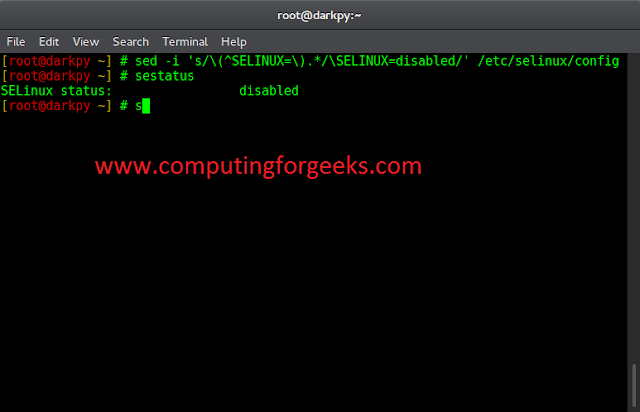Given an integer N, the task is to find the minimum number of coins required to create all the values in the range [1, N].
Examples:
Input: N = 5
Output: 3
The coins {1, 2, 4} can be used to generate all the values in the range [1, 5].
1 = 1
2 = 2
3 = 1 + 2
4 = 4
5 = 1 + 4Input: N = 10
Output: 4
Approach: The problem is a variation of coin change problem, it can be solved with the help of binary numbers. In the above example, it can be seen that to create all the values between 1 to 10, denominator {1, 2, 4, 8} are required which can be rewritten as {20, 21, 22, 23}. The minimum number of coins to create all the values for a value N can be computed using the below algorithm.
// A list which contains the sum of all previous
// bit values including that bit value
list = [ 1, 3, 7, 15, 31, 63, 127, 255, 511, 1023]
// range = N
for value in list:
if(value >= N):
print(list.index(value) + 1)
break
Below is the implementation of the above approach:
C++
// C++ implementation of the approach#include <bits/stdc++.h>using namespace std;// Function to return the count// of minimum coins requiredint findCount(int N){ // To store the required sequence vector<int> list; int sum = 0; int i; // Creating list of the sum of all // previous bit values including // that bit value for (i = 0; i < 20; i++) { sum += (1<<i); list.push_back(sum); } for (i = 0; i < 20; i++) { if (list[i] >= N) { return (i + 1); } }}// Driver Codeint main(){ int N = 10; cout << findCount(N) << endl; return 0;}// This code is contributed by kanugargng |
Java
// Java implementation of the approachimport java.util.*;class GFG { // Function to return the count // of minimum coins required static int findCount(int N) { Vector list = new Vector(); int sum = 0; int i; // Creating list of the sum of all // previous bit values including // that bit value for (i = 0; i < 20; i++) { sum += Math.pow(2, i); list.add(sum); } for (i = 0; i < 20; i++) { if ((int)list.get(i) >= N) return (list.indexOf(list.get(i)) + 1); } return 0; } // Driver Code public static void main(String[] args) { int N = 10; // Function Call to find count System.out.println(findCount(N)); }}// This code is contributed by AnkitRai01 |
Python3
# Python3 implementation of the approach# Function to return the count# of minimum coins requireddef findCount(N): # To store the required sequence list = [] sum = 0 # Creating list of the sum of all # previous bit values including # that bit value for i in range(0, 20): sum += 2**i list.append(sum) for value in list: if(value >= N): return (list.index(value) + 1)# Driver codeN = 10print(findCount(N)) |
C#
// C# implementation of the above approachusing System;using System.Collections.Generic;class GFG { // Function to return the count // of minimum coins required static int findCount(int N) { List<int> list = new List<int>(); int sum = 0; int i; // Creating list of the sum of all // previous bit values including // that bit value for (i = 0; i < 20; i++) { sum += (int)Math.Pow(2, i); list.Add(sum); } for (i = 0; i < 20; i++) { if ((int)list[i] >= N) return (i + 1); } return 0; } // Driver Code public static void Main(String[] args) { int N = 10; Console.WriteLine(findCount(N)); }}// This code is contributed by PrinciRaj1992 |
Javascript
<script> // Javascript implementation of the above approach // Function to return the count // of minimum coins required function findCount(N) { let list = []; let sum = 0; let i; // Creating list of the sum of all // previous bit values including // that bit value for (i = 0; i < 20; i++) { sum += parseInt(Math.pow(2, i), 10); list.push(sum); } for (i = 0; i < 20; i++) { if (list[i] >= N) return (i + 1); } return 0; } let N = 10; document.write(findCount(N)); // This code is contributed by rameshtravel07.</script> |
4
Time Complexity: O(n)
Auxiliary Space: O(1)
Efficient approach: The minimum number of coins required to create all the values in the range [1, N] will be log(N)/log(2) + 1.
Below is the implementation of the above approach:
C++14
// C++ program to find minimum number of coins#include<bits/stdc++.h>using namespace std;// Function to find minimum number of coinsint findCount(int n){ return log(n)/log(2)+1;}// Driver codeint main() { int N = 10; cout << findCount(N) << endl; return 0;} |
Java
// Java program to find minimum number of coinsclass GFG{ // Function to find minimum number of coinsstatic int findCount(int n){ return (int)(Math.log(n) / Math.log(2)) + 1; }// Driver codepublic static void main(String[] args){ int N = 10; System.out.println(findCount(N));}}// This code is contributed by divyeshrabadiya07 |
Python3
# Python3 program to find minimum number of coinsimport math# Function to find minimum number of coinsdef findCount(n): return int(math.log(n, 2)) + 1 # Driver codeN = 10print(findCount(N))# This code is contributed by divyesh072019 |
C#
// C# program to find minimum number of coinsusing System;class GFG{ // Function to find minimum number of coins static int findCount(int n) { return (int)(Math.Log(n) / Math.Log(2)) + 1; } // Driver code public static void Main() { int N = 10; Console.Write(findCount(N)); }}// This code is contributed by rutvik_56. |
Javascript
<script> // Javascript program to find minimum number of coins // Function to find minimum number of coins function findCount(n) { return parseInt(Math.log(n)/Math.log(2), 10)+1; } let N = 10; document.write(findCount(N)); </script> |
4
Time complexity : O(log(n))
Auxiliary space: O(1)
Ready to dive in? Explore our Free Demo Content and join our DSA course, trusted by over 100,000 neveropen!




